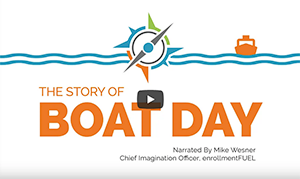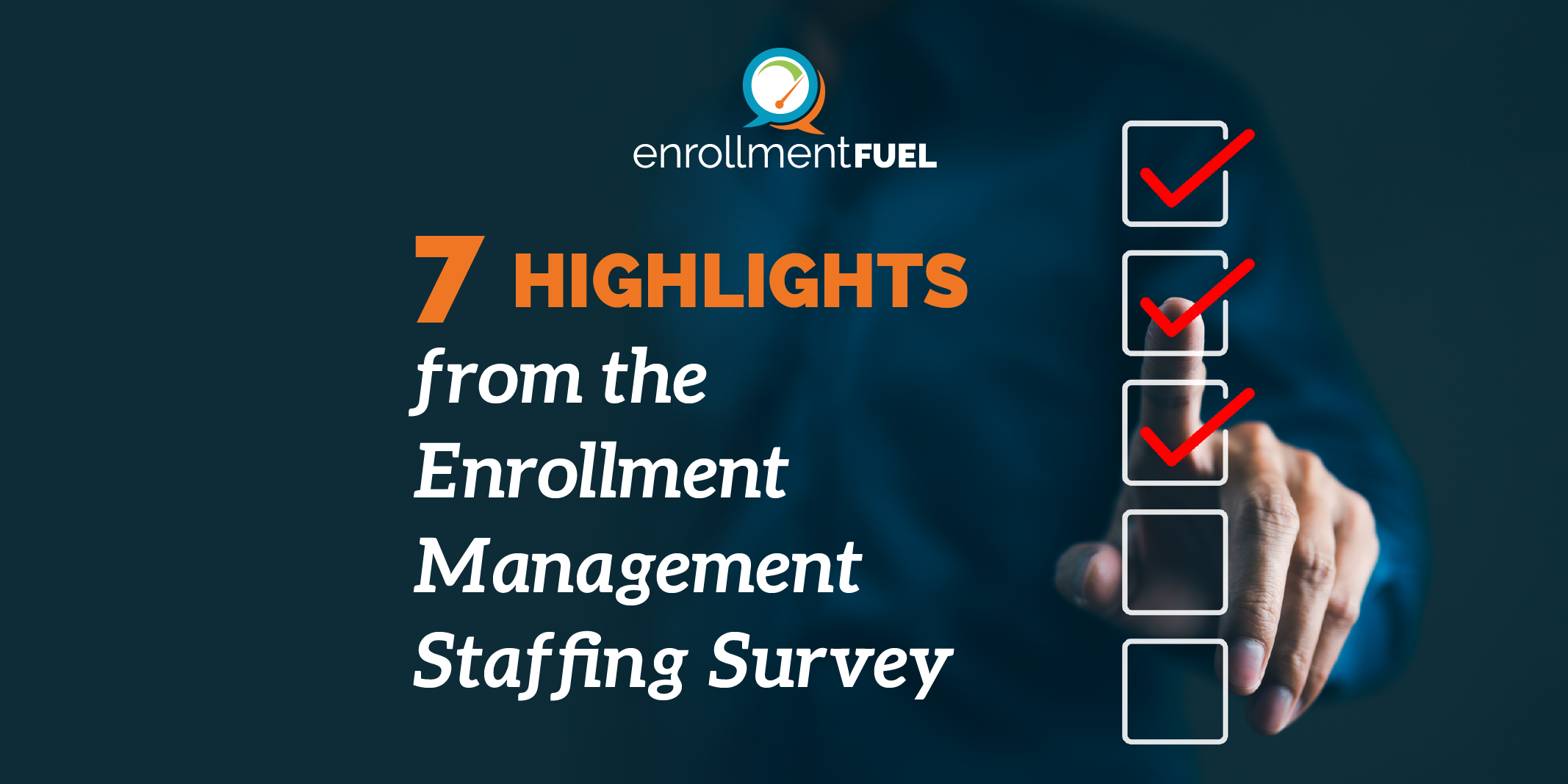In these unusual times, colleges and universities face complex challenges. The educational landscape is undergoing a seismic shift, with declining demographics, economic pressures, and changing tools, all while institutional resources dwindle. Amid these trials, enrollment management processes must evolve, and adapting to new market realities is crucial. That's why an external Strategic Enrollment Management (SEM) study can be a game-changer. Although some may fear the implications of seeking external help, it's time to set aside those concerns and focus on what's best for success.
5 Critical SEM Study Considerations
In this article, we will explore the benefits of external evaluations and discuss finding the right partner to navigate these turbulent waters. After all, taking action now can give your institution the best chance to thrive in the years to come.
1: Unprecedented Challenges are the New Normal
These are not normal times. Colleges and universities often struggle to maintain or increase enrollment, but the market conditions now (and for the foreseeable future) are incredibly challenging.
- The demographic cliff is real and is going to get worse.
The customer base, especially for traditional students, is declining and will continue declining. The industry is overbuilt, given trending birth rates, high school graduation trends, and the growing numbers of families who no longer see value in higher education.
- The economy is not helping.
Inflation is hurting families’ ability to pay for college. Financial challenges create real pressure for price increases at colleges and universities.
- Federal and state funding for financial aid is simply not keeping pace.
As aggregate financial need grows and funding stays relatively flat, the gaps in the ability to pay mean institutions must increase institutional aid expenditures or lose prospective students because of inadequate financial aid packages.
- Traditional tools are changing.
Colleges must continuously respond to technological changes, social media, and all communication mechanisms. Recent changes at the testing agencies will decrease the number of student names available for Student Search.
- Institutional resources are becoming even more scarce.
Given inflation, rising financial aid costs, declining endowments, and the demand for salary equity, obtaining the resources needed to succeed is only getting more challenging. Enrollment leaders are expected to accomplish more with fewer human and fiscal resources.
2: Enrollment Management Processes Must Evolve
The enrollment management environment is constantly changing and at a rate much faster than in previous years. Too often, enrollment managers face drops in applications, acceptances, and yield, yet have little time to evaluate every aspect of the recruitment and financial aid plan to make timely and impactful changes.
Regardless of time, resource, or personnel constraints, enrollment management plans must change in response to new market realities. Continuing with the same strategies and tactics when recent history demonstrates that they may no longer be effective is ill-advised.
3: Assess the Benefits of External Reviews
Deciding to engage an external entity to conduct a detailed study is a big step. Some enrollment managers fear such an engagement will make it appear they are not qualified for the job, and some may fear implications that there are weaknesses in the current approach.
It is time to set those fears aside and do what is best to help you succeed. There are real benefits to an external evaluation.
- Broad array of experience.
Enrollment management consultants bring a broad array of experience to the table. Consultants benefit from working with dozens (if not hundreds) of colleges and universities, which qualifies them to identify weaknesses in a variety of operations and provides access to innovative practices.
- An opportunity to ask your questions.
An external audit allows you to ask specific questions about your operation. External consultants create a safe space for sharing known challenges you may not know how to resolve. Discuss your ideas and initiatives to uncover flaws and identify opportunities.
- Credibility garners support.
External experts can come to the table with greater credibility than internal operators. Take advantage of their credibility to garner outside support for needed resources or confirmation of initiatives you may struggle to sell to leadership.
4: Finding the Right Consulting Firm
Once you have decided to bring in outside experts to improve your policies, processes, and outcomes, identifying the right consultant for you and your institution is essential.
- Experience matters.
Find a company with significant experience. How many colleges and universities has the company served? Do they provide a one-size fits all solution, or are they customizing the study for you?
- Who have they successfully worked with in the past?
Generic experience is terrific, but specific work with other colleges and universities like yours is critical. A company whose clients are mostly large public institutions may not be the best fit for a small liberal arts college.
- Look for a company with demonstrated success.
Company X may have worked with 100 colleges and universities, but can they provide examples of material success? Did the number of viable applications increase? Did more students get accepted? Keep in mind that success in generating applications and acceptances is meaningless unless the firm can also point to material increases in enrollment.
- Find a partner who will be an advocate.
If you are a Vice President for Enrollment or a Director of Admission or Financial Aid, seek a company that will act as a real partner and advocate. A reliable partner understands that your institution's success is their success. They will work closely with you, taking the time to understand your specific needs, challenges, and goals. This level of partnership goes beyond a transactional relationship; it's about forming a collaborative alliance built on trust, mutual respect, and shared objectives. An advocate will champion your cause within your organization, leveraging their experience working with numerous colleges and universities to identify weaknesses, provide innovative solutions, and help you make informed decisions. A partner and advocate can help you gain credibility and support from key stakeholders within your institution. They bring an external perspective and expertise that can inform and persuade internal stakeholders.
5: Selling the Investment to Your President and Senior Administrators
Enrollment managers may need financial resources from the cabinet or President if the departmental budget is insufficient to fund a study.
- It’s good business and best practice.
An external study is good business and a best practice. Even a college or university performing well in the current environment can benefit from the opinions of external experts.
- Weigh the costs against the potential benefits.
While costs may vary significantly as a function of project size and scope, even modest success can cover the cost of the investment. Consider the net revenue generated by a single new student at your institution. How many additional students would it take to cover the cost of the study?
Market conditions are dire for many colleges and universities. Hardly a week goes by without another report of a longstanding college or university closing. While so many institutions are struggling, it is also clear that some are thriving. There will be winners and losers over the next several years. Act now to give your institution the best chance to be among the schools that thrive.
Related Articles
Launching Successful Online Academic Programs | enrollmentFUEL
The COVID-19 pandemic drastically reshaped the landscape of higher education. With the rapid...
Diagnosing Higher Ed Enrollment Issues via Financial Aid Analysis
A lot of enrollment professionals exert energy and effort looking for a silver bullet to solve the...
Privacy Restrictions in Higher Ed | enrollmentFUEL
We hope you had an opportunity to join the College Board webinar on Wednesday, March 29, 2023....




